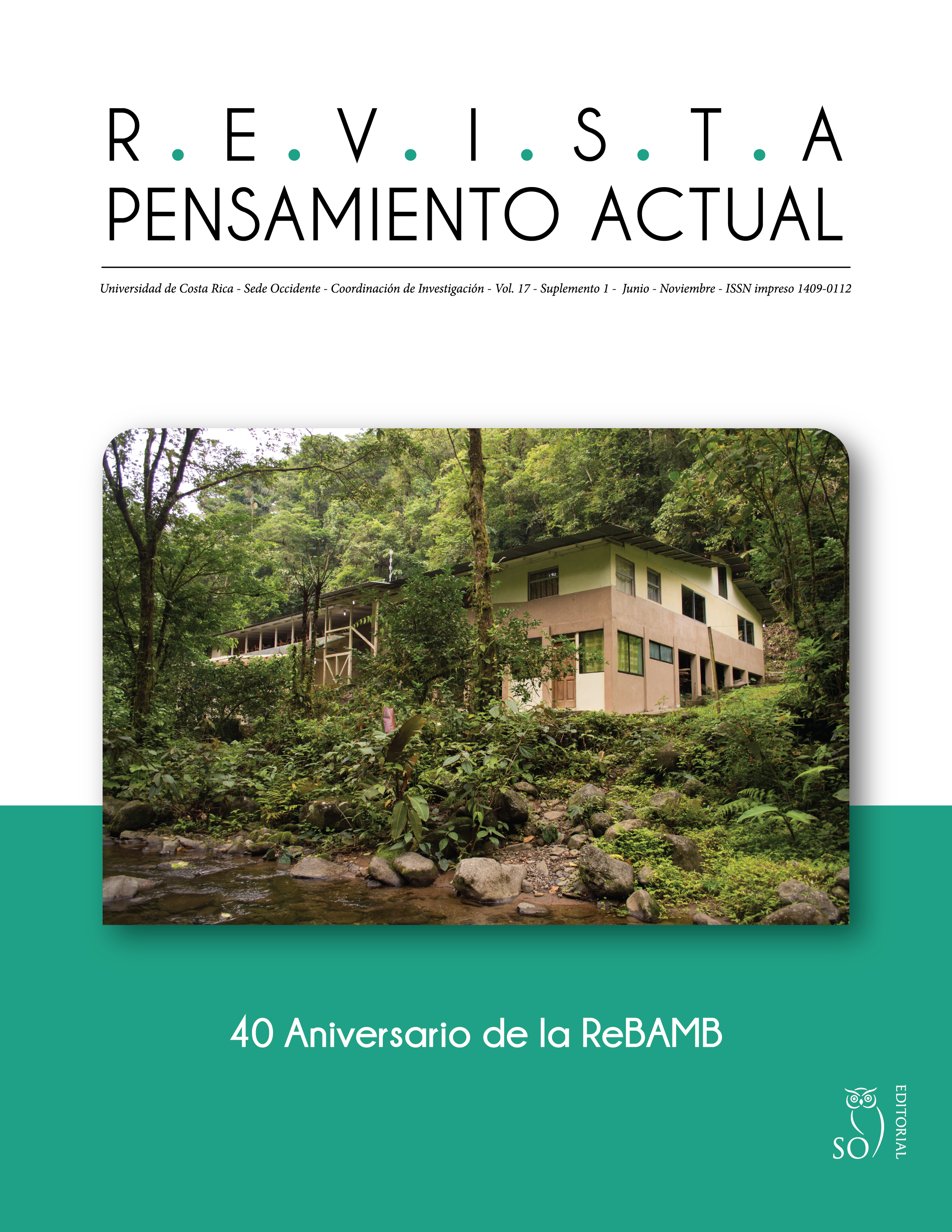Abstract
A sequential account of a whole scientific relationship is made between the Alberto Manuel Brenes Biological Reserve (ReBAMB) and the University of Medical Sciences (UCIMED). In this review of the work done, we first discuss how the scientific relationship between the working groups of both institutions is established. The following are the projects carried out in which a basic methodology is outlined, the details of which guide the reader to the publications generated as a result of this alliance. These publications are listed below by quantity, by subject and by research stage. Prior stage of relationship between groups Subject of study. Biological and health characteristics of primates from Costa Rica with a total of 17 publications, all cited in the references, Research stage in the ReBAMB. First subject of study. Search of active chemical components against parasitosis with 5 publications. Second research topic. Study of the endofauna of some small animals of the ReBAMB with 4 relevant publications, as two of them present the report of 3 new protozoa in the world, Eimeria rebambensis, E. melanomytis and E. caliginosa, parasitizing the rodent Melanomys caliginosus. In addition the report of a new wild transmitter of Trypanosoma cruzi, parasite that causes Chagas disease. It highlights the importance of ReBAMB as an inexhaustible source of scientific production and the positive experience it means in science, the union of two universities, one public and one private.

